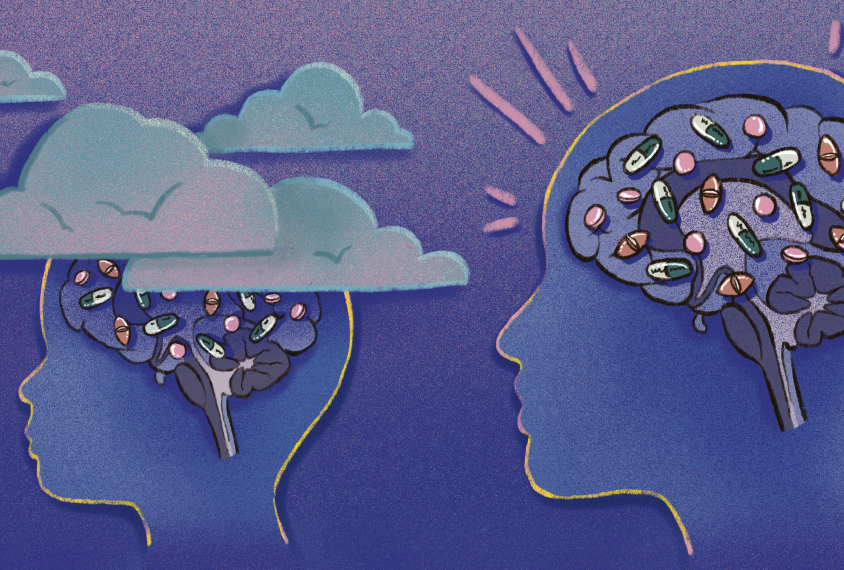Jeremy Veenstra-VanderWeele uses molecular and translational neuroscience research tools in the pursuit of new treatments for autism.
Jeremy Veenstra-VanderWeele
From this contributor
Why serotonin medications may yet help children with autism
A class of medications used to treat obsessive-compulsive disorder seems to ease compulsive behaviors in adults with autism. Why can't we tell if these medications work similarly in children with the condition?

Why serotonin medications may yet help children with autism
How to evaluate new medications for autism
There are no available medications for treating autism’s core symptoms, but there are several candidates in clinical trials. Jeremy Veenstra-VanderWeele describes the factors researchers must take into account when developing drugs for the disorder.

How to evaluate new medications for autism
Explore more from The Transmitter
Shifting neural code powers speech comprehension
Dynamic coding helps explain how the brain processes multiple features of speech—from the smallest units of sounds to full sentences—simultaneously.

Shifting neural code powers speech comprehension
Dynamic coding helps explain how the brain processes multiple features of speech—from the smallest units of sounds to full sentences—simultaneously.
Astrocytes orchestrate oxytocin’s social effects in mice
The cells amplify oxytocin—and may be responsible for sex differences in social behavior, two preprints find.

Astrocytes orchestrate oxytocin’s social effects in mice
The cells amplify oxytocin—and may be responsible for sex differences in social behavior, two preprints find.
Neuro’s ark: Spying on the secret sensory world of ticks
Carola Städele, a self-proclaimed “tick magnet,” studies the arachnids’ sensory neurobiology—in other words, how these tiny parasites zero in on their next meal.

Neuro’s ark: Spying on the secret sensory world of ticks
Carola Städele, a self-proclaimed “tick magnet,” studies the arachnids’ sensory neurobiology—in other words, how these tiny parasites zero in on their next meal.